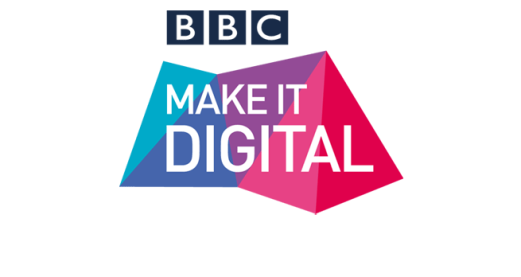
The Apple tax judgement
The European Commission has, this morning, announced that Apple will have to pay the Irish Government €13billion in back taxes. BBC News has the story:
"Member states cannot give tax benefits to selected companies - this is illegal under EU state aid rules," said Commissioner Margarethe Vestager.
"The Commission's investigation concluded that Ireland granted illegal tax benefits to Apple, which enabled it to pay substantially less tax than other businesses over many years," she added.
The standard rate of Irish corporate tax is 12.5%. The Commissions's investigation concluded that Apple had effectively paid 1% tax on its European profits in 2003 and about 0.005% in 2014.
Ms Vestager said that the tax agreement reached between Ireland and Apple meant that the company's taxable profits "did not correspond to economic reality".
Read the story at BBC News: Apple should repay Ireland €13bn, European Commission rules
Listen to an explanation of the background from the Today programme:
A country not wanting to pick up billions of taxes may seem unusual. Irish newspaper The Journal yesterday explained why the government in Dublin isn't keen on this windfall:
FOR AT LEAST the past three years, Ireland has been trying to fight back against perceptions that the country is a soft touch on tax for multinationals.
The charge was laid out in a very public way in the US Senate when Ireland was labelled a “tax haven” in 2013. Red faces and many a denial followed.
Now, if Apple is slapped with a multi-billion euro Irish tax bill by the European Commission – which is reportedly going to happen tomorrow morning – then the international backlash and consequences could be harder to smooth over.
It is for this reason that the Irish government is hoping that any tax bill is at the lower end of the vastly different estimates that have been predicted.
Read at The Journal: Explainer: Why doesn't the government want Apple to cough up extra taxes?
For its part, the Irish Government insists it collected all the tax to which it was entitled. Joe Brennan of the Irish Times has read their statement:
In a statement after the EU ordered the Republic to collect €13 billion of back taxes after ruling that a special scheme to route profits through Ireland was illegal state aid, Revenue’s chairman Niall Cody said: “The issue of international tax planning, involving mismatches between different countries’ tax rules, is well known and is the subject of the OECD Beps Project.”
He was referring to the Organisation for Economic Co-operation and Development’s base erosion and profit shifting (Beps) project to stamp out tax avoidance loopholes internationally.
“Under Irish law, non-resident companies are chargeable to Irish corporation tax only on the profits attributable to their Irish branches by reference to the facts and circumstances,” Mr Cody said, adding that Revenue provided all relevant information and explanations to the European Commission as part of its investigation into Apple’s tax affairs in Ireland.
Read at The Irish Times: Revenue insists it collected all taxes Apple owed
Apple has said it will appeal the decision.
Anti-trust apps?
Apple might be facing more trouble from US regulators - although it won't be alone this time, as Democrat politicians are starting to explore whether 'free' apps on Google, Windows and Apple infrastructure are breaking US antitrust law. Writing for The Conversation, John Newman has reassuring news for the multibillion industries, though - a lot of free-to-use activity gets overlooked by the regulators:
U.S. antitrust law is uniquely devoted to a strain of economics often called “price theory.” Beginning in the 1970s, price theory came to dominate antitrust law and scholarship.
Price theory (no surprise) focuses on prices. Supposedly, price theory uses price as a synechdoche to represent all aspects of competition. But in fact, businesses compete not just on price but also on quality, innovation, branding and other product attributes.
Yet U.S. antitrust regulators and courts have traditionally focused heavily on price competition. When products are “free” (or, more accurately, “zero-price”), they simply slip under the antitrust radar.
Such, I would argue, was the case in the broadcast radio industry, which has long offered a service “free” to listeners.
In 1996, Congress passed the Telecommunications Act, which removed a longstanding limit on how many stations a single entity can own. A frenzy of mergers and acquisitions followed.
U.S. antitrust enforcement agencies screened these transactions for possible harm to competition but only looked for higher prices to advertisers, neglecting to analyze potential harm to listeners. Most of the mergers were cleared without objection. The resulting lack of competition in many regions means that radio listeners now pay more – by listening to more ads – in exchange for the product they want.
That result should come as no surprise. Listeners may not pay for broadcast radio with money, but they do pay with attention. At its core, this is a prototypical market exchange, as contract law has long recognized.
Facebook trending troubles
Facebook's trending panel - that little box that tells you what's popular amongst its caged community - used to have a degree of human intervention. This caused a storm at the start of summer, with some observers calling the company out for bias:
Facebook has denied allegations that the team responsible for its trending topics section deliberately suppressed conservative views – but says it will improve the feature.
Allegations have been made anonymously that the team responsible for choosing trending topics did so with little oversight and deliberately suppressed conservative views.
On Monday, Facebook denied any bias in a press release and a letter sent directly to John Thune, the chairman of the US Senate commerce committee.
Colin Stretch, general counsel at Facebook, said the company met with Thune on 18 May to discuss an internal two-week investigation, which had found “virtually identical” rates of approval of conservative and liberal topics.
It appears that the solution to potential human bias has been to dump the human input altogether, and leave the picking of trending to computers. All hail the mighty algorithm. Only trouble is... the machine turns out to not be anywhere near as good as people at curating. NiemanLab's Jospeh Lichterman is unimpressed:
My top trending topic Monday morning was Go Topless Day, which was apparently celebrated on Sunday. The lead post was a story from the Canadian site DailyHive that was posted Friday to preview Vancouver’s Go Topless Day Parade that happened Sunday afternoon.
Other top trending topics were McChicken, which linked to a Mashable post that aggregated Twitter reactions to a video of a man having sex with a McDonald’s sandwich; LCD Soundsystem, which has plans for a new album; and Mila Kunis, for which the top story was a post from a page called That Viral Feed. Not exactly the highest quality results — especially given Facebook’s efforts over the past year to reduce the spread of clickbait in the main News Feed.
According to a Pew Research Center study from earlier this year, more than 40 percent of American adults get their news from Facebook.
Facebook — and its algorithm — are extremely powerful and exert huge amounts of control over what type of news coverage a significant number of its users see. So what does it mean when it’s promoting blatantly false news and clickbait aggregation? How can legitimate news outlets operate in this environment when they are becoming increasingly reliant on Facebook? Do users even care that they’re being fed stories from sites of ill repute?
Update - 31st August 2016: The robots aren't in control
In a piece for Slate, Will Oremus has contacted Facebook and discovered that it's not that Facebook have dropped people altogether, just changed the people overseeing the machines:
[I]t’s worth clearing up a popular misunderstanding. Facebook has not entirely eliminated humans from its trending news product. Rather, the company replaced the New York–based team of contractors, most of whom were professional journalists, with a new team of overseers. Apparently it was this new team that failed to realize the [Megyn] Kelly story was bogus when Facebook’s trending algorithm suggested it. Here’s how a company spokeswoman explained the mishap to me Monday afternoon:
The Trending review team accepted this topic over the weekend. Based on their review guidelines, the topic met the conditions for acceptance at the time because there was a sufficient number of relevant articles and posts. On re-review, the topic was deemed as inaccurate and does no longer appear in trending. We’re working to make our detection of hoax and satirical stories more accurate as part of our continued effort to make the product better.
So: Blame the people, not the algorithm, which is apparently the same one Facebook was using before it fired the original trending team. Who are these new gatekeepers, and why can’t they tell the difference between a reliable news source and Endingthefed.com, the publisher of the Kelly piece? Facebook wouldn’t say, but it offered the following statement: “In this new version of Trending we no longer need to draft topic descriptions or summaries, and as a result we are shifting to a team with an emphasis on operations and technical skillsets, which helps us better support the new direction of the product.”
Read at Slate: Trending Bad How Facebook’s foray into automated news went from messy to disastrous
Your doctor also treats these people...
Something else that might cause worries about Facebook, now. The way the platform recommends people to follow might out you as a patient of a certain doctor. Kashmir Hill tells the story of the psych patients being recommended to others:
She hadn’t friended any of her patients on Facebook, nor looked up their profiles. She didn’t have a guest wifi network at the office that they were all using. After seeing my report that Facebook was using location from people’s smartphones to make friend recommendations, she was convinced this happened because she had logged into Facebook at the office on her personal computer. She thought that Facebook had figured out that she and her patients were all in the same place repeatedly. However, Facebook says it only briefly used location for friend recommendations in a test and that it was just “at the city-level.”
I tried to help Lisa figure out what could be causing this and reached out to Facebook about the case. Unfortunately, due to health privacy reasons, Lisa was not able to put me in touch with her patients directly.
When Lisa looked at her Facebook profile, she was surprised to see that she had, at some point, given Facebook her cell phone number. It’s a number that her patients could also have in their phones. Many people don’t realize that if they give Facebook access to their phone contacts, it uses that information to make friend recommendations; so if your ex-boss or your one-time Tinder date or your psychiatrist is a contact in your phone, you might start seeing them pop up in the “People You May Know” list.
Read at Fusion.net: Facebook recommended that this psychiatrist’s patients friend each other
Jeremy Corbyn's digital manifesto
This morning, Labour leader (and Labour leadership campaigner) Jeremy Corbyn has been outlining his plans for a new digital deal should he ever become Prime Minister. His speech was a bit entwined, mixing his plans to use technology to campaign for a Labour victory with plans for what a Labour government would do with technology if it was in power. (Effectively, it was like announcing a plan for repainting pillarboxes while also pledging to send out more letters - thematically linked, but might have been better to deal with policy in a different speech from the one about party process.)
The Guardian's live politics blog covered the event, and some of the first objections to the details of policy that Corbyn admitted would need further thinking:
Here is an extract from his speech released in advance:
My leadership campaign is leading the way in harnessing the advances of new technology to organise political campaigning like we’ve never seen before.
The creativity of the networked young generation is phenomenal. We have thousands of young volunteers on our campaign taking part in this digital revolution.
We will channel this new energy and creativity into Labour’s general election campaign whenever it comes, it’s in this way that Labour can get back into government.
Labour under my leadership will utilise the advances of digital technology to mobilise the most visible general election campaign ever.
There is also a clear need for more online democracy and our manifesto today sets out how Labour would democratise the internet in order to rebuild and transform Britain, so that no one and no community is left behind.
[...]
In the comments trenchfeet has said this about Jeremy Corbyn’s open source proposal.
Andrew - have you thought through the consequences of this innocuous looking sentence: "We will require that all publicly funded software and hardware is released under an Open Source licence."Most IT projects use proprietary software, that is then tweaked for purpose. That will pretty much stop any IT company working on a public sector project. It's huge.
This did come up in the Q&A. Someone asked to what extent Corbyn would extend the principle of open source. Richard Barbrook said in response to that question that “where possible” the government should use open source software. But he also said that the digital democracy manifesto was a work in progress. (See 11.24am.) Corbyn himself also stressed that his ideas were not finalised. (See 11.32am.)
Read at The Guardian Politics: Corbyn promises to 'democratise the internet' - Politics live



Rate and Review
Rate this audio
Review this audio
Log into OpenLearn to leave reviews and join in the conversation.
Audio reviews